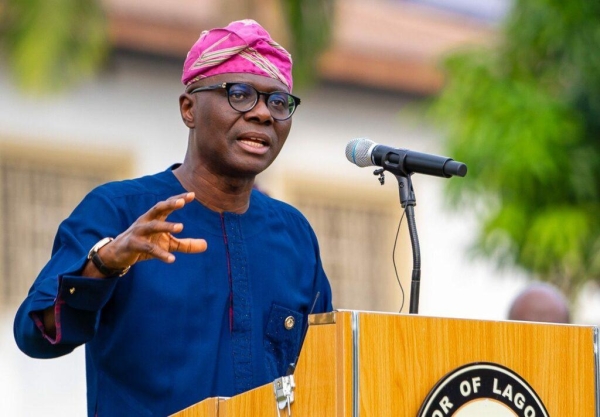Lagos State Governor, Babajide Sanwo-Olu, has called for broader inclusion of Micro, Small and Medium Enterprises and high-net-worth individuals in Nigeria’s tax net to address growing tax evasion and boost revenue collection.
Sanwo-Olu, represented by his Special Adviser on Taxation and Revenue, Ogungbo Abdul-Kabir Opeyemi, made the call on Tuesday during the opening ceremony of the 27th Annual Tax Conference of the Chartered Institute of Taxation of Nigeria in Abuja.
In his goodwill message, the governor pointed to a clause in the new tax reform bills awaiting constitutional approval, which exempts employees earning below N800,000 annually from Personal Income Tax, as a potential gap that must be tackled.
He said, “The clause(s) that puts a cap on income of employees at N800,000 per annum, before it can be subjected to Personal Income Tax, requires deliberate strategies to ensure taxpayers hiding in the MSME and start-up sectors are brought into the tax net and intensify effort on Direct Assessment drive for high net worth individuals to forestall the trend of tax evasion as witnessed across the country today.”
He urged sub-national governments to play a leading role in the implementation of the reforms and not wait on the Federal Government alone.
“It is imperative that as sub-nationals, we not only embrace but also lead the implementation drive,” he said.
The governor further called for policy commitments by state governments to update laws, adopt technology, invest in data analytics, and develop human capital to fully harness the benefits of the reform.
Highlighting Lagos as a benchmark for effective tax administration, Sanwo-Olu attributed the state’s recent internally generated revenue milestone of N1tn in 2024 to its digital reforms and a citizen-friendly approach to tax compliance.
“Our payer-centric system successfully built in conveniences and transformed how taxpayers fulfil their obligations without leaving their comfort zones. This greatly promoted voluntary compliance, hence the N1tn modest IGR stride achieved by Lagos State Internal Revenue Service in the 2024 fiscal year,” he said.
He added that Lagos had deployed artificial intelligence chatbots for engaging citizens, integrated data analytics, and created a harmonised platform through the Lagos Revenue Portal to improve efficiency and transparency.
Sanwo-Olu also highlighted initiatives such as the N10bn partnership with the Bank of Industry to support MSMEs and the passage of the Lagos State Electricity Law in December 2024 to promote energy self-sufficiency and reduce reliance on the national grid.
He reiterated the importance of fiscal reforms to national development, stating, “These elements are critical to realising the full potential of our tax reform efforts, enhancing fiscal capacity, and contributing meaningfully to Nigeria’s overarching goal of attaining a $1tn economy.”
While commending President Bola Tinubu for his strategic leadership in driving tax and economic reforms, the governor also praised CITN for its commitment to building a resilient tax culture in Nigeria.


